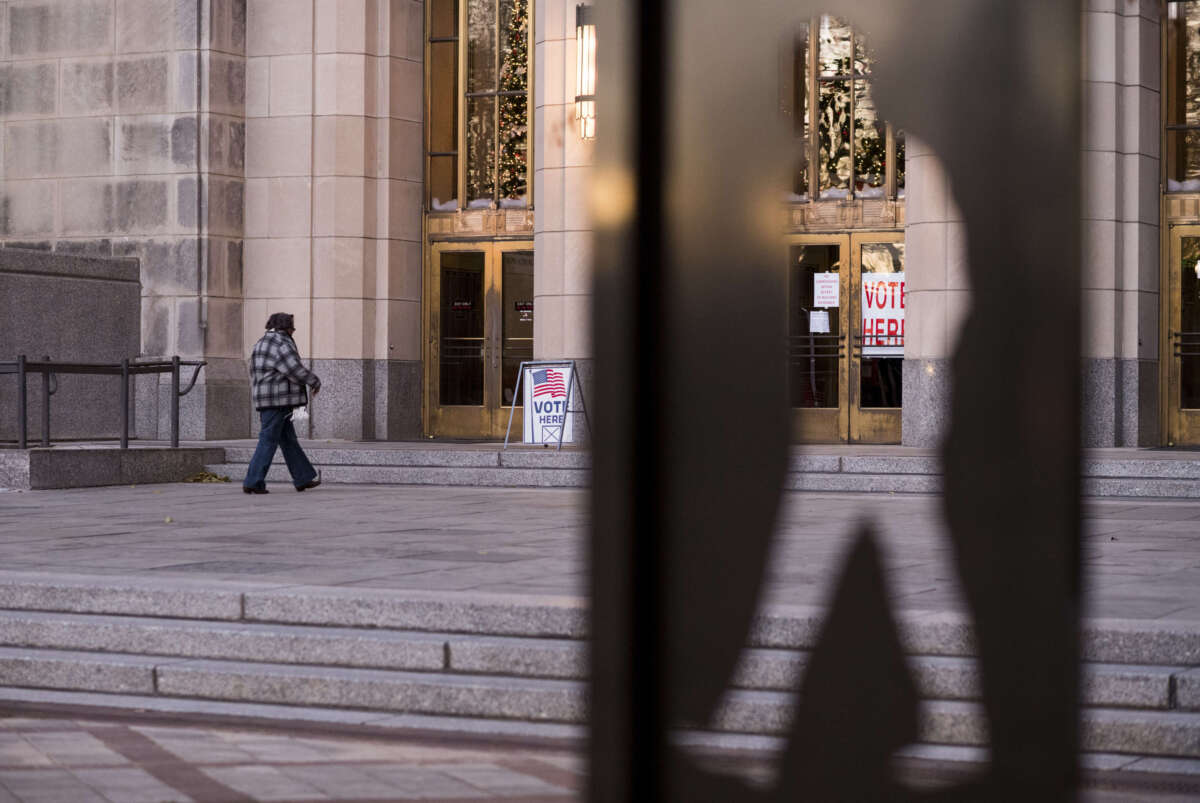Truthout is a vital news source and a living history of political struggle. If you think our work is valuable, support us with a donation of any size.
A federal judge has blocked a portion of an Alabama state law passed earlier this year concerning absentee ballots, finding that it illegally limited how people who are disabled, blind or have difficulty reading can be helped in casting their votes.
Chief U.S. District Judge David Proctor stated in his ruling, which was issued on Tuesday, that the state law was in violation of federal protections, particularly Section 208 of the Voting Rights Act, which protects the rights of voters who may not be able to request or fill out a ballot without assistance.
The law, Senate Bill 1 (SB 1), “unduly burdens the rights of Section 208 voters to make a choice about who may assist them in obtaining and returning an absentee ballot,” Proctor concluded.
SB 1 prohibits “any person from ordering, requesting, collecting, prefilling, obtaining, or delivering an absentee ballot application or absentee ballot of a voter.” However, Section 208 allows voters who have disabilities to “be given assistance by a person of the voter’s choice, other than the voter’s employer or agent of that employer or officer or agent of the voter’s union.”
“The requested injunction will serve to ensure certain disabled, blind, and illiterate voters are not disenfranchised” in this year’s election, Proctor added in his ruling.
A coalition of voting rights groups who challenged the law for violating Section 208, which includes the Alabama chapter of the NAACP, the League of Women voters, Greater Birmingham Ministries, the American Civil Liberties Union and the Alabama Disabilities Advocacy Program, lauded the ruling by Proctor, disagreeing with Marshall’s assessments.
“Our democracy works best when everybody can participate in it, and this ruling prevents the enforcement of a cruel law that would have suppressed the voices of blind, disabled, and low-literacy voters,” the coalition said in a joint statement.
Alabama Attorney General Steve Marshall plans to appeal the injunction.
“Alabama’s elections will be less secure and the voting rights of the State’s most vulnerable voters less protected if SB1’s injunction remains in place,” Marshall’s office contended.
Critics of the law, including William Van Der Pol Jr., senior trial counsel for the Alabama Disabilities Advocacy Program (ADAP), told Truthout in July that SB 1 is “just pure voter suppression.”
“Individuals, particularly individuals with disabilities whose only realistic way to vote is absentee, are being excluded from the system,” Van Der Pol said.
A terrifying moment. We appeal for your support.
In the last weeks, we have witnessed an authoritarian assault on communities in Minnesota and across the nation.
The need for truthful, grassroots reporting is urgent at this cataclysmic historical moment. Yet, Trump-aligned billionaires and other allies have taken over many legacy media outlets — the culmination of a decades-long campaign to place control of the narrative into the hands of the political right.
We refuse to let Trump’s blatant propaganda machine go unchecked. Untethered to corporate ownership or advertisers, Truthout remains fearless in our reporting and our determination to use journalism as a tool for justice.
But we need your help just to fund our basic expenses. Over 80 percent of Truthout’s funding comes from small individual donations from our community of readers, and over a third of our total budget is supported by recurring monthly donors.
Truthout has launched a fundraiser to add 432 new monthly donors in the next 7 days. Whether you can make a small monthly donation or a larger one-time gift, Truthout only works with your support.
